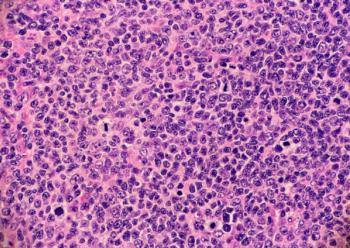
Christopher R. Flowers, MD, reviewed challenges of treating indolent B-cell lymphoma.

Christopher R. Flowers, MD, reviewed challenges of treating indolent B-cell lymphoma.

In this review, Ujjani and Cheson present a useful overview of the array of existing and developing roles for monoclonal antibodies in the management of B-cell non-Hodgkin lymphomas (NHLs). These roles may be characterized as single-agent antibody therapy, use in combination with chemotherapy and/or other antibodies, and use following an initial regimen (consolidation/maintenance). Rituximab (Rituxan), the first monoclonal antibody approved for B-cell NHL, clearly has had greatest application in each of these arenas, but it has now been joined by alemtuzumab (Campath) and ofatumumab (Arzerra) as approved single-agent therapies. Also highlighted are a number of other antibodies aimed at B-cell targets: veltuzumab, GA101, AME-133 (CD20), epratuzumab (CD22), lumiliximab (CD23), galiximab (CD80), dacetuzumab (CD40), mapatumumab, lexatumumab (TRAIL), and approaches to improve antibody therapy such as conjugation with radioisotopes or toxins.

Published: February 11th 2010 | Updated: